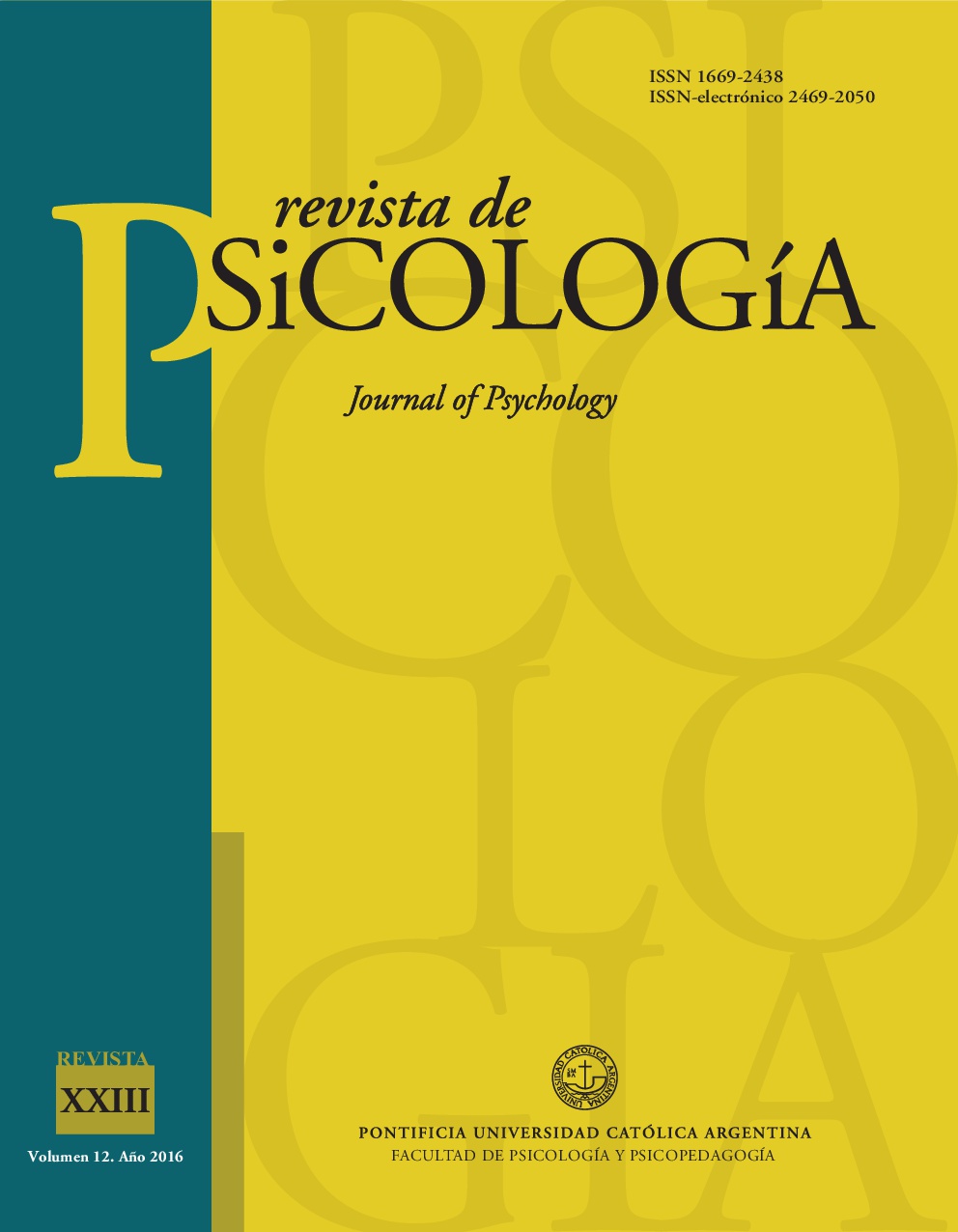Una nueva psicología del razonamiento: fundamentos y aplicaciones
Palabras clave:
Razonamiento, paradigma, fundamentos, aplicaciones.Resumen
Se ha anunciado recientemente la creación de un Nuevo Paradigma en psicología del razonamiento. El propósito del presente artículo es presentar sus fundamentos y aplicaciones. Se proponen reflexiones críticas sobre las innovaciones respecto del paradigma previo. Se consideran tres fundamentos: 1) el empleo de una nueva lógica normativa que contempla la verdad, la falsedad y otras opciones, 2) el empleo de nuevos recursos formales como la probabilidad subjetiva para modelar fenómenos psicológicos y, 3) el recurso al marco teórico general de la mente dual. Se analizan también las potenciales aplicaciones del Nuevo Paradigma. Por último, se mencionan algunos avances. Se concluye que el Nuevo Paradigma es un modelo original de prácticas para la investigación sobre razonamiento deductivo que se encuentra en elaboración.
Descargas
Referencias
Adams, E. W. (1998). A primer of probability logic. Stanford, CA: CSLI Publications.
Baratgin, J., Over, D. E., & Politzer, G. (2013). Uncertainty and the de Finetti tables. Thinking & Reasoning, 19 (3-4), 308-328.
DOI: 10.1080/13546783.2013.809018
Bayes, T. (1763). An essay towards solving a problem in the doctrine of chances. Philosophical Transactions of the Royal Society of London, 53, 370-418. DOI: 10.1098/rstl.1763.0053
Bonnefon, J. F. (2013). New ambitions for a new paradigm: Putting the psychology of reasoning at the service of humanity. Thinking & Reasoning, 19 (3-4), 381-398, DOI: 10.1080/13546783.2013.774294
De Finetti, B. (1936/1995). The logic of probability. Foresight: Its logical laws, its subjective sources. En H. J. Kyburg& H. E. Smokler (Eds.), Studies in subjective probability (pp. 55-118). Huntington, NY: Robert E. Krieger.
De Finetti, B. (1970/1974). Theory of probability (Vols. 1 & 2). Chichester, UK: John Wiley & Sons.
Elqayam, S., & Over, D. E. (2013). New paradigm psychology of reasoning: An introduction to the special issue edited by Elqayam,
Bonnefon, and Over. Thinking & Reasoning, 19 (3-4), 249-265. DOI:
1080/13546783.2013.841591
Evans, J. S. B. T., & Over, D. E (2004). If. Oxford, UK: Oxford University Press.
Evans, J. S. B. T., & Stanovich, K. E. (2013). Dualprocess theories of higher cognition: Advancing the debate. Perspectives on
Psychological Science, 8(3), 223-241. DOI: 101177/1745691612460685
Garnier, R., & Taylor, J. (1996). 100% mathematical proof. Chichester, UK: John Wiley & Sons.
Gigerenzer, G., Swijtink, Z., Porter, T., Daston, L., Beatty, J., & Krüger, L. (1989). The empire of chance. Cambridge, MA: Cambridge
University Press.
Kahneman, D. (2011). Thinking fast and slow. New York, NY: Farrar, Strauss & Giroux.
Khemlani, S., Orenes, I., & Johnson-Laird, P. N. (2012). Negation: A theory of its meaning, representation, and use. Journal of Cognitive
Psychology, 24(5), 541-559. DOI: 10.1080/20445911.2012.660913
Kuhn, T. S. (1970). The structure of scientific revolutions, Second Edition. Chicago, IL: University of Chicago Press.
Kuhn, T. S. (1970). The structure of scientific
revolutions, Second Edition. Chicago, IL: University of Chicago Press.
Macbeth, G., Razumiejczyk, E., Crivello, M. C., Fioramonti, M., & Pereyra Girardi, C. I. (2013). The shallow processing of logical
negation. Psychology and Behavioral Sciences, 2 (5), 196-201. DOI:
11648/j.pbs.20130205.15
Oaksford, M., & Chater, N. (2007). Bayesian rationality. Oxford, UK: Oxford University Press.
Oaksford, M. &Chater, N. (2013). Dynamic inference and everyday conditional reasoning in the new paradigm. Thinking & Reasoning, 19 (3-4), 346-379. DOI: 10.1080/13546783.2013.808163
Over, D. E. (2009). Book review: New paradigm psychology of reasoning. Thinking & Reasoning, 15 (4), 431-438. DOI:
1080/13546780903266188
Pfeifer, N. (2013). The new psychology of reasoning: A mental probability logical perspective. Thinking & Reasoning, 19 (3-4), 329-345. DOI: 10.1080/13546-783.2013.838189
Suppes, P., & Hill, S. (1992). First course in mathematical logic. Mineola, NY: Dover Publications.
Thaler, R., & Sustein, C. S. (2008). Nudge: Improving decisions about health, wealth, and happiness. Yale, CT: Yale University Press.
Thompson, V. A., Evans, J. S. B. T, & Campbell, J. I. D. (2013). Matching bias on the selection task: It´s fast and feels good. Thinking &
Reasoning, 19 (3-4), 431-452. DOI: 10.1080/13546783.2013.820220
Descargas
Publicado
Número
Sección
Licencia











